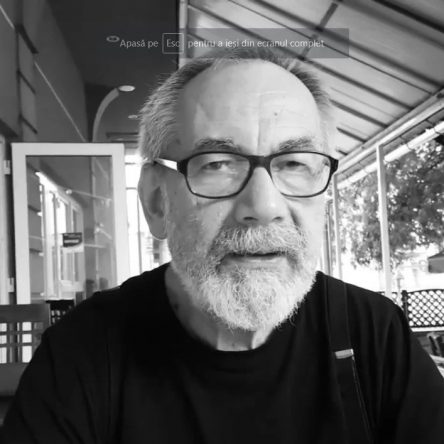Bucharest City Museum, Casa Filipescu-Cesianu, October 13-14, 2017
Organizers: Union of Armenians of Romania, Lepsiushaus Potsdam, Bucharest City Museum, Orbis Tertius Association
Conveners: Varujan Vosganian, Rolf Hosfeld, Bedros Horasangian, Sorin Antohi
The first proof of Armenian presence on the territories inhabited by Romanians is a Cetatea Albă tombstone dated 967 AD. Over time, this presence has become ever more significant. Thus, historian Nicolae Iorga was right to say that Armenians are somehow the ancestors of the medieval principality of Moldova. On the vast map of the Armenian diaspora, the Romanian lands have remained an important location ever since. In Romania’s historical mesoregion, defined by geopolitical instability and fluid, multiple, contested identities, many people of various, entangled backgrounds (ethnic, religious, linguistic, social) could trace back their origins to some Armenian ancestor. After the 1915 genocide, a tragic new wave of Armenian immigrants has reached Romania, and some of their descendants are still around. Rumor had it that a government of Armenia could be easily formed in interwar Bucharest by the post-genocide refugees.
In recent years, worldwide attention has been devoted to the history, memory, and official recognition of the Armenian genocide. This attention has triggered a multitude of conferences and publications, research programs and civic, educational, artistic, and media initiatives.
With this in mind, an international conference is convened in Bucharest to explore the history of the Armenian genocide and of its lasting consequences (with an emphasis on their conceptual and comparative dimensions), its memory (including its forgetting, denial, forgiveness, transgenerational trauma, and public significance), and the related issues of responsibility (from the ethics of memory to political recognition, from moral solidarity to retrospective justice).
The conference is part of the series of public dialogues, Ideas in the Agora, initiated and coordinated by Sorin Antohi at the Bucharest City Museum.
The event will be open to the public, enjoy media coverage, will be video recorded and broadcast live in Internet, also being the basis for the future publication of a collective volume in English.
Friday, October 13
18:00-20:00 Session One: Armenians, Turks, and Germans in 1915 and After
Moderator: Sorin Antohi
Varujan Vosganian, Opening Remarks
Raymond Kévorkian, Le Génocide des Arméniens : les grandes lignes d’un plan de destruction
Halil Berktay, Turkey’s Difficulties. Progress and Problems Over the Last Decade
Rolf Hosfeld, Germany and the Armenian Genocide
20:00-20:15 Break
20:15-21:00 Remembering the Whisperers: Armine Vosganian reads excerpts from Varujan Vosganian’sThe Book of Whispers. Varujan Vosganian shows a selection of relevant images and tells the stories in and behind them.
Saturday, October 14
9:00-11:00 Session Two: The Armenian Diaspora
Moderator:Armenuhi Ghambaryan
Gérard Dédéyan, Arméniens et arménophiles à Montpellier (vers 1880–vers 1920)
Carol Iancu, Bernard Lazare, les Juifs et les Arméniens
Hakob Matevosyan, Diaspora Revisited: Agential Forces and Structures of the Armenian Presence in East Central Europe
11:00-11:30 Coffee Break
11:30-13:30 Session Three: War and Genocide
Moderator: Felicia Waldman
Bedros Horasangian, The Gallipoli Campaign and the Armenian Genocide: History and Memory
Suren Manukyan, The (Un)changing Nature of Victimisation of Ottoman Armenians in theRun-up to Genocide
Armenuhi Ghambaryan, Reflections of the Armenian Genocide in US Congressmen’s Speeches and Statements (1918-1919)
13:30-15:00 Lunch Break
15:00-17:00 Session Four: Recognition, Responsibility, Denial
Moderator: Gabriel Andreescu
Ashot Melkonian, The International Recognition Process of the Armenian Genocide in the Context of the Reparation Issue(delivered in Armenian; English-language handouts)
Yair Auron, Israel and the Recognition of the Armenian Genocide
Gabriel Andreescu, The Case of Perinçek v. Switzerland: a Benchmark on the ArmenianGenocide Denial
17:00-17:30 Coffee Break
17:30-19:30Session Five: Denial, History,Memory
Moderator: Rolf Hosfeld
Felicia Waldman, The Great Game (and Stakes) of Denial
Cătălin Mamali, Sakharov’s Puzzle and Denial Levels of the Armenian Genocide
Sorin Antohi, The Armenian Genocide: History, Memory, Responsibility
Participants
1. Gabriel Andreescu (Bucharest)
2. Sorin Antohi (Bucharest)
3. Yair Auron (Neve Shalom, Israel)
4. Halil Berktay (Istanbul)
5. Gérard Dédéyan (Montpellier)
6. Armenuhi Ghambaryan (Yerevan)
7. Bedros Horasangian (Bucharest)
8. Rolf Hosfeld (Potsdam)
9. Carol Iancu (Montpellier)
10. Raymond Kévorkian (Paris)
11. Cătălin Mamali (Dubuque, Iowa, US)
12. Suren Manukyan (Yerevan)
13. Hakob Matevosyan (Leipzig)
14. Ashot Melkonian (Yerevan)
15. Varujan Vosganian (Bucharest)
16. Felicia Waldman (Bucharest)






